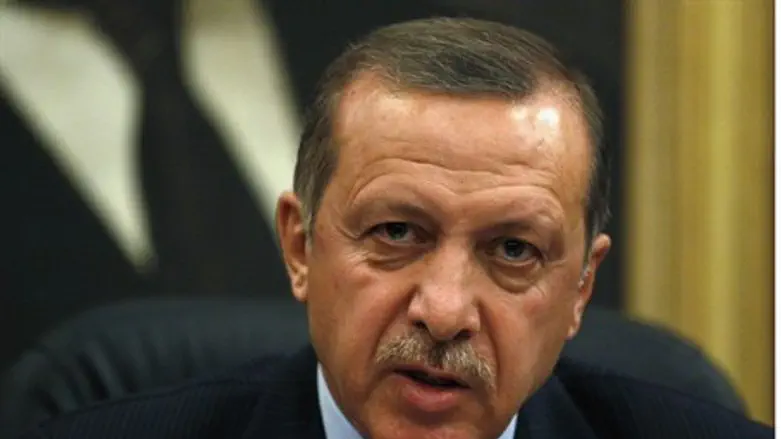
The U.S. government politely warned Turkey’s prime minister this week against visiting Gaza, with a statement reminding Recep Tayyip Erdogan not to “engage with Hamas.”
Erdogan told lawmakers after a telephoned apology by Israel’s Prime Minister Binyamin Netanyahu over the deaths of nine terror activists in a 2010 clash on the Mavi Marmara flotilla vessel that he might visit Gaza, Judea and Samaria as early as next month.
The Turkish prime minister stated the trip would come as part of his effort to “help the process” of lifting Israel’s blockade of Gaza, one of three demands he made in order to restore diplomatic ties with the Jewish State. The apology by the prime minister was also one of the demands. The third was financial compensation to the families of each of those killed in the clashes.
State Department acting deputy spokesperson Patrick Ventrell underscored in a Washington briefing Wednesday that the U.S. would continue to “urge all those wishing to provide international humanitarian support to Gaza to do so through established channels, to ensure that the Palestinians’ humanitarian needs and Israel’s legitimate security needs are both met,” AFP reported.
Washington’s stand on Gaza’s terrorist rulers has also “not changed,” Ventrell added, noting the Obama administration’s “opposition to engagement with Hamas.”
Erdogan, a fervent supporter of the Islamist group, all but broke off ties with Israel after Jerusalem launched a three-week mini-war with Hamas in the winter of 2008-2009 to silence the constant rocket fire from Gaza terrorists at its civilians in southern Israel.
The strained ties were further damaged when a Turkish-owned vessel participated in an illegal flotilla that attempted to break Israel’s blockade on the region, a security measure which is kept in place to prevent smuggling of arms to terrorists for attacks on Israelis.
The flotilla vessels ignored five loudspeaker requests by Israeli navy personnel to redirect their ships to Ashdod port for inspection of their cargo and transport of the goods overland to the region. Instead, they persisted on course, forcing Israeli military personnel to board and take control of the vessels.
In the case of the Mavi Marmara, the soldiers were met by armed terrorists ready for battle, rather than peaceful activists, and were attacked as they boarded the ship, forcing them to defend themselves. Nine of the attackers were killed.
